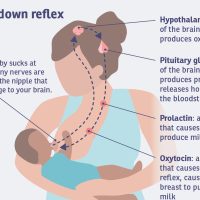Considerations for Lasik Surgery During Breastfeeding
It is often advised that breastfeeding mothers postpone Lasik eye surgery until after they have weaned their child. In some cases, a waiting period of 3–6 months or longer post-breastfeeding is recommended before undergoing the procedure. This guidance stems from concerns that hormonal fluctuations during lactation may temporarily alter corneal curvature, potentially affecting surgical outcomes. The primary risk is that vision changes during breastfeeding could necessitate corrective surgery post-weaning.
While some individuals do experience vision changes during lactation, there is limited evidence suggesting that all breastfeeding mothers will encounter such shifts or that any changes would persist throughout the entire breastfeeding period. Notably, some experts propose that a mother’s eyes may return to their baseline state once menstrual cycles resume regularity—a milestone many reach well before weaning.
Additionally, certain medications prescribed during Lasik recovery may pose risks to breastfeeding individuals, further supporting the recommendation to delay the procedure. However, personalized assessments by healthcare providers remain crucial, as recommendations can vary based on individual health and ocular stability.
Corneal Changes and Lasik Considerations During Pregnancy and Lactation
Hormonal shifts during pregnancy can alter corneal curvature, and limited research suggests similar changes may occur during breastfeeding. One small study involving 24 participants (Park et al., 1992) observed corneal changes in pregnancy, though the abstract does not clarify whether participants later breastfed or how breastfeeding duration influenced results.
To explore this further, Ruth Lawrence, MD, a co-author of Breastfeeding: A Guide for the Medical Profession, was consulted (personal communication, August 2005). She emphasized that avoiding Lasik during lactation is only necessary if temporary vision changes linked to breastfeeding occur. Such changes, while possible, do not universally affect all individuals.
A breastfeeding parent and their eye care provider can typically identify any vision fluctuations. If changes are present, delaying Lasik until vision stabilizes is prudent, as further shifts could necessitate repeat surgery. Notably, standard Lasik eligibility criteria already require a stable glasses prescription for at least one year—a benchmark that inherently excludes those experiencing vision changes during pregnancy or lactation.
In summary, while hormonal influences on corneal shape are documented, individualized evaluation remains key. Postponing surgery may be advisable only if lactation-related vision instability exists, aligning with broader surgical guidelines.




